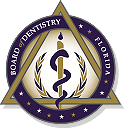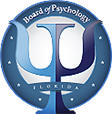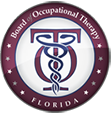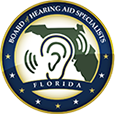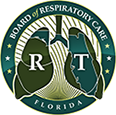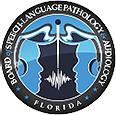
Streamlining Licensure for Health Care Practitioners
A health care licensure compact is a multijurisdictional licensing model best known for its agreement among states to mutually recognize each other’s professional licenses, which allows health care practitioners to practice across state lines without having to obtain separate licenses in each state. Florida participates in licensure compacts to improve licensure mobility for health care practitioners and increase consumers’ access to health care services, ultimately contributing to a more efficient and accessible health care system.

Increased Portability of Licenses

Enhanced Mobility for Health Care Practitioners

Simplified Licensing Procedures
Each licensure compact operates under different models, requirements, and privileges; therefore, it is important to understand that no two compacts are the same, and the rules, benefits, and application processes may vary significantly depending on the specific compact and profession involved.
Available Compacts:
Nurse Licensure Compact
Florida joined the Nurse Licensure Compact (NLC) as the 27th member state in 2018 following the passage of House Bill 1061 during the 2016 legislative session. Under this compact, registered nurses (RNs) and licensed practical nurses (LPNs) holding a multistate license can practice in other compact member states without obtaining additional licenses. The multistate license is issued in a nurse’s primary state of residence, but is recognized across state lines, like a driver’s license.
MODEL:
The compact utilizes a mutual recognition approach, whereby individuals may apply within their home compact state for a multistate license. If a nurse who possesses a multistate license changes his or her primary state of residence by moving from a compact state to a noncompact state, the multistate license will be converted to a single-state license, valid only in the former home state.
SCOPE OF PRACTICE:
Licensees must comply with the scope of practice defined by the state in which the client is located at the time service is provided.
ADVERSE ACTION:
The home state has exclusive power to impose adverse action against an individual’s license. If an individual’s home state license is encumbered, the licensee’s privilege to practice in remote states is nullified until the home state license is fully restored.
A remote state may take adverse action against an individual’s multistate licensure privilege within that state. Any adverse action is reported to both the licensure information system and the licensee’s home state, where the adverse action will be handled as if it had occurred in the home state.
REQUIREMENTS:
Each member state must require the following for an applicant to obtain a multistate license:
- Has graduated or is eligible to graduate from a board-approved RN or LPN/VN prelicensure education program;
- Has passed an English proficiency exam if English is not the applicant’s native language or if prelicensure education program was not taught in English;
- Has successfully passed an NCLEX-RN® or NCLEXPN® Examination or recognized predecessor;
- Is eligible for or holds an active, unencumbered license;
- Has submitted biometric data for criminal history record checks;
- Has not been convicted or found guilty, or entered into an agreed disposition, of a felony offense;
- Has not been convicted or found guilty, or entered into an agreed disposition, of a misdemeanor offense related to the practice of nursing;
- Is not enrolled in an alternative program;
- Is subject to self-disclosure requirements regarding current participation in an alternative program; and
- Has a valid U.S. Social Security number.
For more information on how to apply, visit FloridasNursing.gov/Licensing.
WEBSITE:
COMPACT MAP:
PSYPACT
The Psychology Interjurisdictional Compact (PSYPACT) is an interstate compact designed to advance the practice of psychology across state lines. Florida joined the PSYPACT as the 39th member state upon the passage of House Bill 33 during the 2023 legislative session. By purchasing additional permissions, psychologists can practice beyond what is granted by default under the compact, including conducting temporary in-person assessments or interventions.
MODEL:
Like many other licensure compacts, PSYPACT takes a mutual recognition approach to multistate licensing. However, PSYPACT is somewhat unique in that it distinguishes the way in which privilege to practice is granted by partitioning it into two distinct forms, primarily focusing on telehealth. Practitioners licensed under the compact can choose to exercise their privilege to practice in remote states through telepsychology and/or a temporary authorization to practice in remote states. Telepsychology is defined by the compact as the provision of psychological services using telecommunications technology. On the other hand, a temporary authorization to practice permits psychologists licensed through the compact to conduct temporary in-person, face-to-face practice in remote states. This privilege is limited to 30 days within a calendar year and is primarily used for emergency situations.
SCOPE OF PRACTICE:
Psychologists practicing outside of their home state under a privilege granted by the compact are to operate within the scope of practice of the remote state in which the client is located.
ADVERSE ACTION:
The home state has the power to impose adverse action against a psychologist’s license. The home state regulatory authority is to investigate and take appropriate action with respect to any misconduct reported by a remote state as it would if the infraction had occurred in the home state. If adverse action is taken by the home state, the licensee’s privilege to practice in remote states is nullified.
Remote states have the authority to take adverse action against a psychologist’s temporary authorization to practice and telepsychology privileges within that state. Remote states are to investigate and take appropriate action with respect to any misconduct as it would if such conduct had occurred by a licensee within the home state. All disciplinary orders are to be reported to the Commission.
REQUIREMENTS:
To exercise an authority to practice interjurisdictionally, a licensee must:
- Hold a graduate degree in psychology from an institution that meets the requirements laid out in the compact;
- Possess a current, full and unrestricted license to practice psychology in a home state that is part of the compact;
- Have no history of adverse action that violates the Rules of the Commission;
- Have no criminal record history reported on an Identity History Summary that violates the Rules of the Commission;
- Possess an active E.Passport (for telepsychology) or an active IPC (for temporary in-person practice);
- Provide attestations to qualifications and other requirements; and
- Meet other criteria as defined by the Rules of the Commission.
To apply, visit PSYPACT.org.
WEBSITE:
COMPACT MAP:
Interstate Medical Licensure Compact
The Interstate Medical Licensure Compact (IMLC) is an agreement among multiple licensing jurisdictions that allows members of the Compact to work together to expedite the licensing process for physicians who want to practice in multiple states and U.S. territories. The IMLC has more than 40 member jurisdictions. Florida became the 40th state to join the IMLC following the passage of Senate Bill 7016 during the 2024 legislative session.
MODEL:
The IMLC is the only occupational licensure compact that uses an expedited licensure method. This differs from mutual recognition in that licensees receive an actual license to practice in remote states, rather than a “privilege to practice” that is used in a mutual recognition model. This process is carried out as follows: First, a physician must designate a compact state as his or her “principal state of licensure.” This is the state in which a physician holds a full and unrestricted license and is defined as either the state in which the physician resides; the state where at least 25% of the practice of medicine occurs; the location of the physician’s employer; or the state designated as the state of residence for federal income tax purposes. The physician must then apply for an expedited licensure with the state board of the physician’s state of principal license. The board will then issue a letter of verification, provided the physician meets the necessary requirements, to the Interstate Commission. The physician must register through the Interstate Commission, pay any applicable fees, and denote the state(s) from which he or she wants to receive a license. Following the issuance of any expedited license, the licensee is subject to any fees and continuing education requirements for renewal of any license(s) issued by a member state.
SCOPE OF PRACTICE:
Licensees issued through the Compact authorize licensees to practice medicine in the issuing state consistent with the Medical Practice Act and all applicable laws and regulations of the member state in which the patient is located.
ADVERSE ACTION:
State medical boards retain the jurisdiction to impose an adverse action against a license to practice medicine in that state. Moreover, any disciplinary action taken by any member state may be subject to discipline by other member boards. If an individual’s license is encumbered in the state of principal licensure, then all licenses possessed by the individual will automatically be placed on the same status. If an individual’s license is encumbered in any other member state, then all licenses possessed by the individual will automatically be suspended.
REQUIREMENTS:
To be eligible for expedited licensure, applicants must have:
- Graduated from a medical school accredited by the Liaison Committee on Medical Education, the Commission on Osteopathic College Accreditation, or a medical school listed in the International Medical Education Directory or its equivalent;
- Passed each component of the United States Medical Licensing (USMLE) or the Comprehensive Osteopathic Medical Licensing Examination (COMLEX-USA) within three attempts, or any of its predecessor examination accepted by a state medical board as an equivalent examination for licensure purposes;
- Successfully completed graduate medical education approved by the Accreditation Council for Graduate Medical Education or the American Osteopathic Association;
- Specialty certification or a time-unlimited specialty certificate recognized by the American Board of Medical Specialties or the American Osteopathic Association’s Bureau of Osteopathic Specialists;
- A full and unrestricted license to engage in the practice of medicine issued by a member board;
- Never been convicted, received adjudication, deferred adjudication, community supervision, or deferred disposition for any offense by a court of appropriate jurisdiction;
- Never held a license authorizing the practice of medicine subjected to discipline by a licensing agency in any state, federal, or foreign jurisdiction, excluding any action related to non-payment of fees related to a license;
- Never had a controlled substance license or permit suspended or revoked by a state of the U.S. Drug Enforcement Administration; and
- No pending investigations by a licensing agency or any law enforcement authority.
WEBSITE:
FAQs:
COMPACT MAP:
Compacts in Development:
Counseling Compact
The Counseling Compact, also known as the Interstate Compact for Licensed Professional Counselors, allows professional counselors licensed and residing in a compact member state to practice in other compact member states without need for multiple licenses. Florida joined the Counseling Compact as the 8th member state upon the passage of House Bill 1521 during the 2022 legislative session. The Counseling Compact has more than 38 member states and is in the process of operationalizing the compact. Applications for privileges to practice are expected to open in late 2025. Under this compact, professional counselors who meet uniform licensure requirements will be able to quickly obtain a privilege to practice, which is equivalent to a license to practice counseling in another state.
MODEL:
The Counseling Compact utilizes a mutual recognition approach, whereby individuals may apply within their home state for a privilege to practice in remote states, provided the applicant maintains active status and residence in the home state.
SCOPE OF PRACTICE:
The Counseling Compact provides a streamlined process for counselors to offer services across state lines, but it does not expand or alter the counselor’s scope of practice beyond what is permitted in each state. A professional counselor practicing in a member state under the Counseling Compact must comply with the laws of the state in which the client is located at the time the service is provided. Similarly, the practice of counseling in a member state under a privilege to practice subjects a professional counselor to the jurisdiction of the licensing board, the courts, and the laws of the member state in which the client is located at the time the service is provided. While the Compact provides mobility and flexibility for counselors, it preserves the integrity of state-specific regulations to ensure quality and ethical care.
Counselors are required to have the following to qualify for a privilege to practice under the compact:
- Counselors must hold an active, unencumbered license in their home state, which must also be a member of the Compact.
- Counselors must have completed a graduate-level counseling degree from an accredited program.
- Counselors are required to have passed a national exam.
- A criminal background check, including fingerprinting, is mandatory as part of the licensure process or to secure the privilege to practice in other Compact states.
- Adherence to State Laws: Counselors must comply with the laws and regulations of the state in which they practice, including professional conduct, confidentiality, and continuing education requirements.
- No Adverse Action: Counselors must have no disciplinary or encumbered status on their home state license; otherwise, their privilege to practice in other Compact states will be revoked.
ADVERSE ACTION:
The Counseling Compact grants the home state the authority to take adverse action against a professional counselor’s license. If the counselor’s home state license becomes encumbered, their privilege to practice in other Compact member states is automatically revoked until the encumbrance is resolved. Additionally, a counselor practicing in a remote state is subject to that state’s regulatory authority. A remote state may, following its own laws and due process, revoke or suspend a counselor’s Compact privilege, impose fines, or take other necessary actions to protect public health and safety. The home state must treat reported conduct from a member state as if the conduct occurred within its own jurisdiction, applying its laws to determine appropriate disciplinary measures. Under the Compact, member states can conduct joint investigations, share investigative materials, and take adverse actions based on the factual findings of a remote state.
If a counselor changes their home state while under active investigation, the former home state must complete the investigation, take appropriate action, and report the findings to the Compact’s data system. All adverse actions are recorded in the data system, alerting other member states. The Compact also clarifies that nothing overrides a state’s ability to require a licensee to participate in an alternative program instead of imposing adverse action.
REQUIREMENTS:
Licensee Participation in the Compact
Counselors are required to have the following to qualify for a privilege to practice under the compact:
- Hold an active, unencumbered license in their home state, which must also be a member of the Compact.
- Completed a graduate-level counseling degree from an accredited program.
- Have passed a national exam.
- Have a valid U.S. Social Security number or National Practitioner Identifier number;
- Be eligible for a privilege to practice in any member state;
- Have no encumbrance or restriction against any license or privilege to practice within the previous two years;
- Notify the Commission that the licensee is seeking the privilege to practice within a remote state or states;
- Pay any applicable fees, including any state fee, for the privilege to practice;
- Meet any continuing competence or education requirements established by the home state;
- Meet any jurisprudence requirements established by the remote state or states in which the licensee is seeking a privilege to practice;
- Report to the Commission any adverse action, encumbrance, or restriction on a license taken by any non-member state within 30 days from the date the action is taken; and
- Complete a criminal background check, including fingerprinting.
WEBSITE:
Audiology and Speech-Language Pathology
Interstate Compact
The Audiology and Speech-Language Pathology Interstate Compact (ASLP-IC) facilitates the interstate practice of audiology and speech-language pathology while maintaining public protection. Florida joined the ASLP-IC as the 30th member state upon the passage of Senate Bill 7016 during the 2024 legislative session. The ASLP-IC has more than 30 member states and is in the process of establishing the commission and operationalizing the compact. Once the commission is fully operational and the member states are fully integrated with the compact’s data system, licensed audiologists and speech-language pathologists will be able to apply for a privilege to practice in-person and through telehealth in ASLP-IC states.
MODEL:
The compact utilizes a mutual recognition approach, whereby individuals may apply within their home state for a privilege to practice in remote states, provided the applicant maintains active status and residence in the home state.
SCOPE OF PRACTICE:
An audiologist or speech-language pathologist practicing in a member state must comply with the state practice laws of the state in which the client is located at the time service is provided. The practice of audiology and speech-language pathology is defined by the state practice laws of the member state in which the client is located. Likewise, the practice of audiology and speech-language pathology in a member state under a privilege to practice subjects an audiologist or speech-language pathologist to the jurisdiction of the licensing board, the courts and the laws of the member state in which the client is located at the time service is provided.
ADVERSE ACTION:
The home state has the power to take adverse action against an audiologist’s or speech-language pathologist’s home state license. If a home state license is encumbered, the licensee’s privilege to practice in remote states is nullified until the home state license is no longer encumbered and two years have elapsed from the date of adverse action.
A licensee providing audiology or speech-language pathology services in a remote state is subject to that state’s regulatory authority. A remote state may, in accordance with due process and that state’s laws, remove a licensee’s compact privilege in the remote state for a specific period, impose fines and/or take any other necessary actions to protect the health and safety of its citizens. For purposes of taking adverse action, the home state gives the same priority and effect to reported conduct received from a member state as it would if the conduct had occurred within the home state. In so doing, the home state shall apply its own state laws to determine appropriate action.
REQUIREMENTS:
FOR ALL APPLICANTS
- Holds an active license in the home state;
- Has no encumbrance on any state license;
- Has not had any adverse action against any license or compact privilege within the previous two years from date of application;
- Report to the commission adverse action taken by any non-member state within 30 days from the date the adverse action is taken.
FOR AN AUDIOLOGIST
- Meet one of the qualifying education requirements;
- Has completed a supervised clinical practicum experience from an accredited educational institution or its cooperating programs as required by the board;
- Has successfully passed a national examination approved by the commission;
- Holds an active, unencumbered license;
- Has not been convicted or found guilty, and has not entered into an agreed disposition, of a felony related to the practice of audiology, under applicable state or federal criminal law; and
- Has a valid U.S. Social Security or National Practitioner Identification number.
FOR A SPEECH-LANGUAGE PATHOLOGIST
- Meet one of the qualifying education requirements;
- Has completed a supervised clinical practicum experience from an educational institution or its cooperating programs as required by the commission;
- Has completed a supervised postgraduate professional experience as required by the commission;
- Has successfully passed a national examination approved by the commission;
- Holds an active, unencumbered license;
- Has not been convicted or found guilty, and has not entered into an agreed disposition, of a felony related to the practice of speech-language pathology, under applicable state or federal criminal law; and
- Has a valid U.S. Social Security or National Practitioner Identification number.
WEBSITE:
FAQs:
COMPACT MAP:
Physical Therapy Compact
The Physical Therapy Compact (PT Compact) is an interstate agreement that facilitates the practice of physical therapy across state lines while maintaining public protection. While certain provisions in Senate Bill 7016 (2024) materially deviate from the model PT Compact statute and Florida is unable to obtain compact privileges at this time, Florida remains committed to aligning with the PT Compact’s standards; Florida is actively exploring opportunities to participate fully in the future, enhancing access to care and mobility for physical therapists and physical therapist assistants.
MODEL:
This compact issues compact privileges by the PT Compact Commission on behalf of the state boards and privileges are therefore obtained through the PT Compact website.
SCOPE OF PRACTICE:
A licensee providing physical therapy in a remote state under the compact privilege must function within the laws and regulations of the remote state. That is, a compact privilege allows the privilege holder to practice physical therapy in a remote state under the scope of practice of the state where the patient/client is located.
ADVERSE ACTION:
The home state has exclusive power to impose adverse action against an individual’s license. If an individual’s home state license is encumbered, the licensee’s privilege to practice in remote states is nullified until the home state license is no longer encumbered and two years have elapsed from the date of adverse action.
A remote state may take adverse action against an individual’s privilege to practice within that state. If an individual’s privilege to practice in any remote state is encumbered, the individual shall not be eligible to practice in any remote state until the license is fully restored and all applicable fines are paid.
REQUIREMENTS:
To be granted the privilege to practice under the Compact, the licensee must:
- Hold a license in the home state;
- Have no encumbrance on any state license;
- Have not have any adverse action against any license or compact privilege within the previous two years;
- Notify the commission that the licensee is seeking the compact privilege within a remote state(s);
- Pay any applicable fees, including any state fee, for the compact privilege;
- Meet any jurisprudence requirements established by the remote state(s) in which the licensee is seeking a compact privilege; and
- Report to the commission adverse action taken by any non-member state within 30 days from the date the adverse action is taken.













